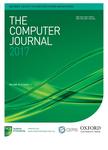版权所有:内蒙古大学图书馆 技术提供:维普资讯• 智图
内蒙古自治区呼和浩特市赛罕区大学西街235号 邮编: 010021

作者机构:Univ Politecn Catalunya Dept Elect Engn E-08028 Barcelona Spain
出 版 物:《COMPUTER JOURNAL》 (计算机杂志)
年 卷 期:2003年第46卷第1期
页 面:84-99页
核心收录:
学科分类:08[工学] 0835[工学-软件工程] 0812[工学-计算机科学与技术(可授工学、理学学位)]
主 题:Programming theory
摘 要:In this paper we develop a variant, regenerative randomization with Laplace transform inversion, of a previously proposed method (the regenerative randomization method) for the transient analysis of rewarded continuous time Markov models. Those models find applications in dependability and performability analysis of computer and telecommunication systems. The variant differs from regenerative randomization in that the truncated transformed model obtained in that method is solved using a Laplace transform inversion algorithm instead of standard randomization. As regenerative randomization, the variant requires the selection of a regenerative state on which the performance of the method depends. For a class of models, class C , including typical failure/repair models, a natural selection for the regenerative state exists and, with that selection, theoretical results are available assessing the performance of the method in terms of visible characteristics. Using dependability class C models of moderate size of a RAID 5 architecture we compare the performance of the variant with those of regenerative randomization and randomization with steady-state detection for irreducible models, and with those of regenerative randomization and standard randomization for models with absorbing states. For irreducible models, the new variant seems to be about as fast as randomization with steady-state detection for models which are not too small when the initial probability distribution is concentrated in the regenerative state, and significantly faster than regenerative randomization when the model is stiff and not very large. For stiff models with absorbing states, the new variant is much faster than standard randomization and significantly faster than regenerative randomization when the model is not very large. In addition, the variant seems to be able to achieve stringent accuracy levels safely.